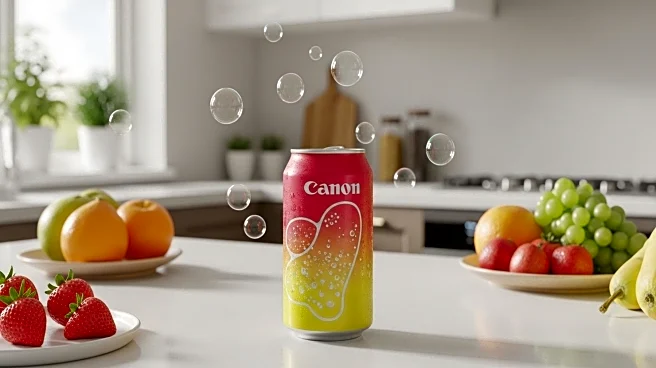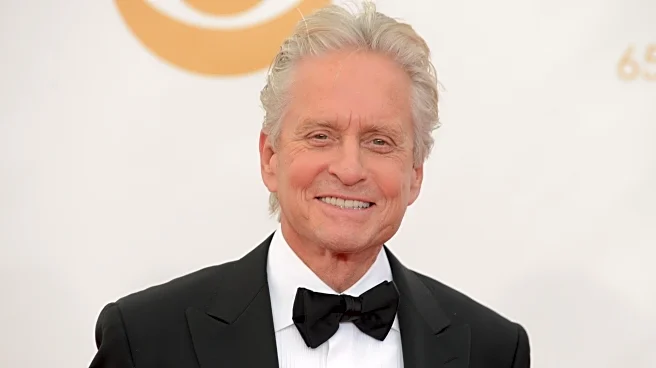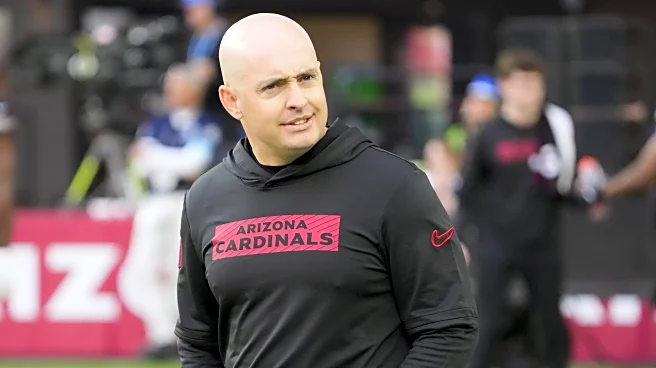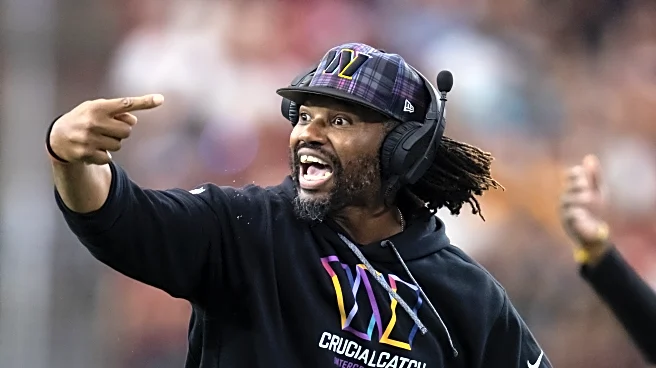What's Happening?
PepsiCo is actively pursuing innovation to address changing consumer preferences and boost demand for its products. The company announced new product lines, including protein-infused Starbucks coffee, low-sugar Gatorade, and Doritos with all-natural ingredients. Despite a 3% decline in North American food business revenue in the third quarter, PepsiCo is optimistic about the potential of these new offerings. Chairman and CEO Ramon Laguarta emphasized the urgency of innovation during a conference call with investors, highlighting the introduction of a 'NKD' line of Doritos and Cheetos without artificial flavors or colors. Additionally, Tostitos and Lay's chips will soon be available without artificial dyes. PepsiCo's beverage segment showed positive results, with Pepsi Zero Sugar experiencing double-digit net revenue growth and Mountain Dew sales benefiting from new flavors. Overall, PepsiCo's total revenue increased by 2.6% to $23.94 billion in the July-September period, surpassing Wall Street expectations.
Why It's Important?
PepsiCo's strategic shift towards healthier and innovative products reflects broader industry trends as companies adapt to evolving consumer demands. The introduction of products with natural ingredients and reduced sugar content aligns with growing health consciousness among consumers. This move is crucial for PepsiCo to regain market share and improve profitability, especially in its North American food business, which has faced challenges. The company's efforts to innovate and streamline its product portfolio could enhance its competitive position against rivals like Coca-Cola. Additionally, PepsiCo's collaboration with Elliott Investment Management, an activist investor, underscores the pressure to optimize operations and focus on core brands. The potential refranchising of North American bottlers and increased online sales and delivery demand could further transform PepsiCo's business model, making it more efficient and responsive to future market dynamics.
What's Next?
PepsiCo plans to continue discussions with Elliott Investment Management to explore strategic options, including refranchising its North American bottlers. This process, successfully completed by Coca-Cola in 2017, could help PepsiCo streamline operations and focus on its core brands. The company is also preparing for increased online sales and delivery demand, leveraging technology to enhance warehouse efficiency. PepsiCo's appointment of Steve Schmitt, a former Walmart executive, as its new chief financial officer, signals a potential shift in financial strategy. As current CFO Jamie Caulfield retires, Schmitt's experience could guide PepsiCo through these transformative changes. The company's focus on innovation and efficiency aims to address future consumer demands and eliminate operational bottlenecks, positioning PepsiCo for sustained growth.
Beyond the Headlines
PepsiCo's strategic initiatives highlight the ethical and cultural dimensions of consumer health trends. By reducing artificial ingredients and sugar content, the company is responding to increasing consumer awareness about health and wellness. This shift not only impacts product offerings but also reflects broader societal changes towards healthier lifestyles. PepsiCo's collaboration with Elliott Investment Management raises questions about corporate governance and the influence of activist investors in shaping business strategies. The potential refranchising of bottlers and increased reliance on technology could lead to long-term shifts in PepsiCo's operational model, affecting employment and supply chain dynamics. As PepsiCo navigates these changes, it must balance innovation with ethical considerations and stakeholder interests.











